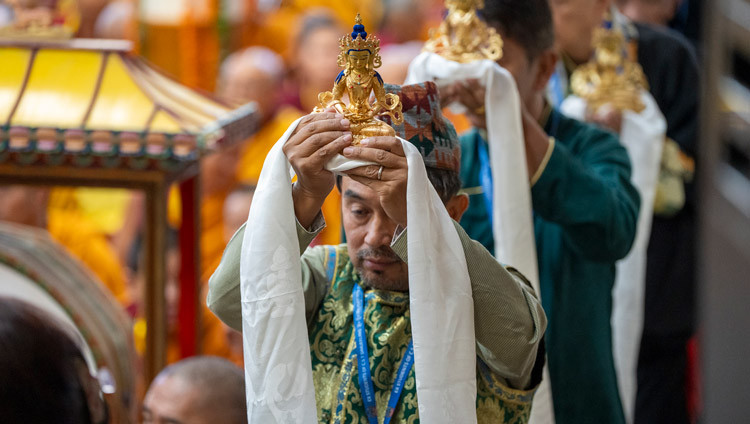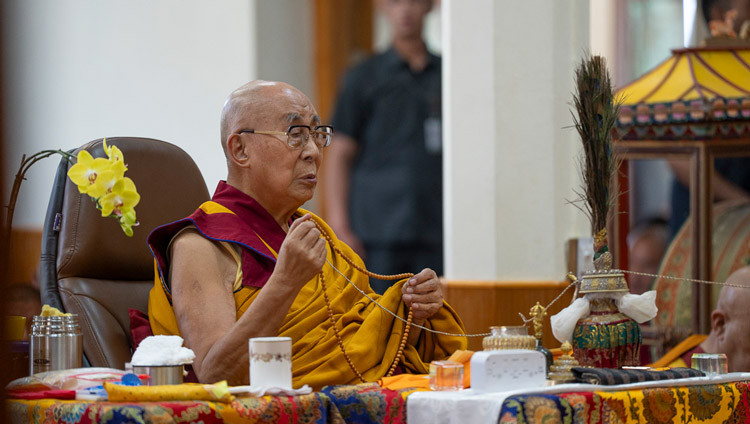III. TIBETAN ASPIRATIONS
Tibetans have a rich and distinct history, culture and spiritual tradition all of which form valuable parts of the heritage of humanity. Not only do Tibetans wish to preserve their own heritage, which they cherish, but equally they wish to further develop their culture and spiritual life and knowledge in ways that are particularly suited to the needs and conditions of humanity in the 21st century.
As a part of the multi-national state of the PRC, Tibetans can benefit greatly from the rapid economic and scientific development the country is experiencing. While wanting to actively participate and contribute to this development, we want to ensure that this happens without the people losing their Tibetan identity, culture and core values and without putting the distinct and fragile environment of the Tibetan plateau, to which Tibetans are indigenous, at risk.
The uniqueness of the Tibetan situation has consistently been recognised within the PRC and has been reflected in the terms of the ’17 Point Agreement’ and in statements and policies of successive leaders of the PRC since then, and should remain the basis for defining the scope and structure of the specific autonomy to be exercised by the Tibetan nationality within the PRC. The Constitution reflects a fundamental principle of flexibility to accommodate special situations, including the special characteristics and needs of minority nationalities.
His Holiness the Dalai Lama’s commitment to seek a solution for the Tibetan people within the PRC is clear and unambiguous. This position is in full compliance and agreement with paramount leader Deng Xiaoping’s statement in which he emphasised that except for independence all other issues could be resolved through dialogue. Whereas, we are committed, therefore, to fully respect the territorial integrity of the PRC, we expect the Central Government to recognise and fully respect the integrity of the Tibetan nationality and its right to exercise genuine autonomy within the PRC. We believe that this is the basis for resolving the differences between us and promoting unity, stability and harmony among nationalities.
For Tibetans to advance as a distinct nationality within the PRC, they need to continue to progress and develop economically, socially and politically in ways that correspond to the development of the PRC and the world as a whole while respecting and nurturing the Tibetan characteristics of such development. For this to happen, it is imperative that the right of Tibetans to govern themselves be recognised and implemented throughout the region where they live in compact communities in the PRC, in accordance with the Tibetan nationality’s own needs, priorities and characteristics.
The Tibetan people’s culture and identity can only be preserved and promoted by the Tibetans themselves and not by any others. Therefore, Tibetans should be capable of self-help, self-development and self-government, and an optimal balance needs to be found between this and the necessary and welcome guidance and assistance for Tibet from the Central Government and other provinces and regions of the PRC.




